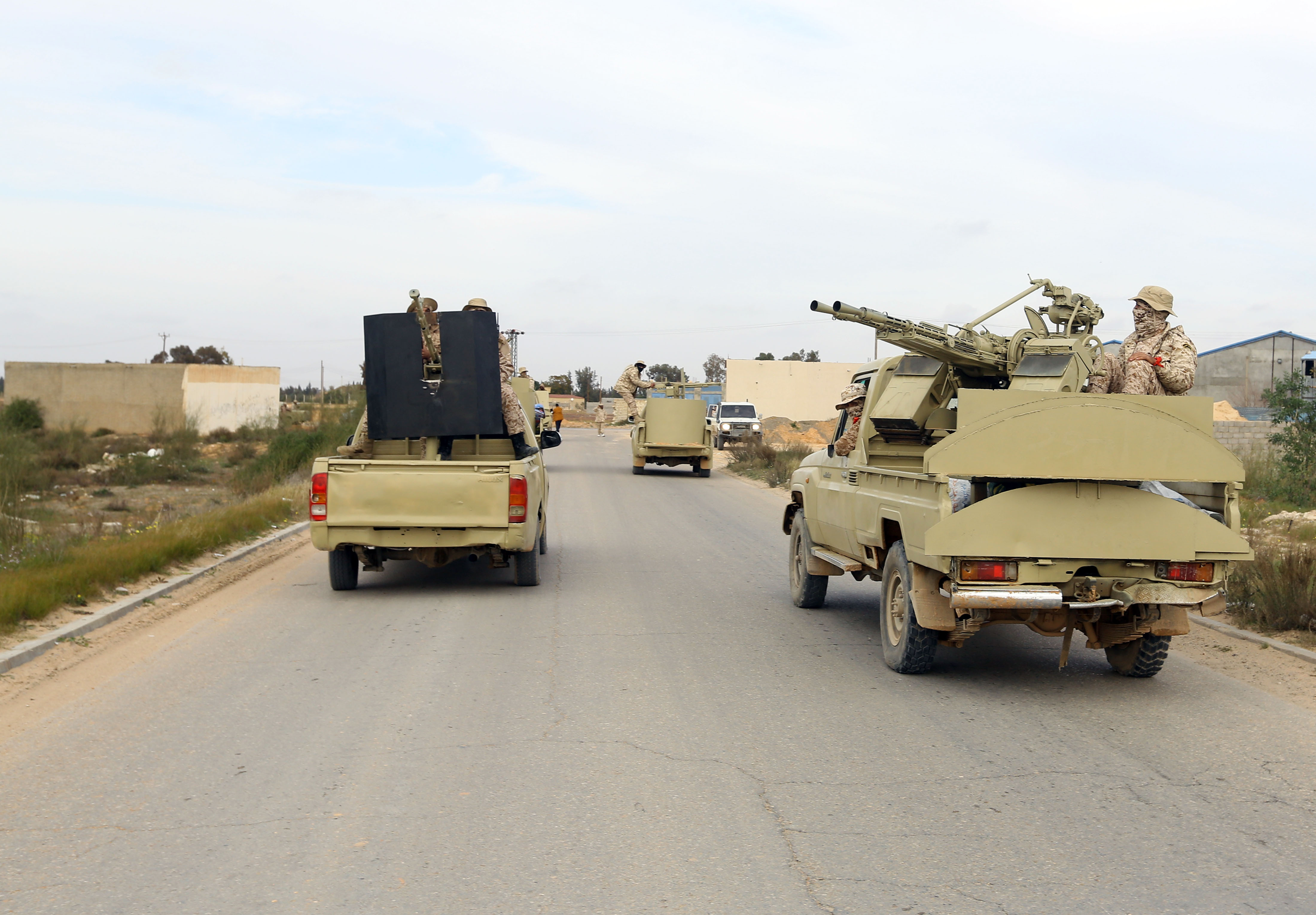
Tripoli Airport Bombed As Battle Rages For Libya's Capital

Security forces patrolling south of Tripoli (Picture: PA).
Clashes between rival Libyan forces for control of Tripoli have escalated as the death toll from the fighting rose to at least 51 and the city's only functioning airport said it was hit by an air strike.
The escalation over Tripoli has threatened to plunge Libya deeper into chaos and ignite a civil war on the scale of the 2011 uprising that toppled and killed longtime dictator Muammar Gaddafi.
The UN said the latest fighting, which began on Thursday, has so far displaced 2,800 people.
No casualties were reported in the air strike on Mitiga airport, about eight kilometres (five miles) east of Tripoli.
Ibrahim Fadel, an airport official, said all flights from and to the airport were suspended until further notice.
The fighting for Tripoli erupted when the self-styled Libyan National Army, led by Khalifa Hifter, began an offensive against the capital, clashing with rival militias that support the UN-backed government in control of the city and the western part of the country.
The official Facebook page of Mitiga, which is run by the UN-backed government, said a fighter jet attacked the facility but gave no other details.
A video circulated online shows a fighter jet firing and apparently targeting the airport, formerly a military base.
Hifter's forces acknowledged striking Mitiga.
WATCH: What Has Caused The Crisis In Libya?
Major General Mohamed al-Manfour, of the Libyan National Army's air force, told the Libyan Address newspaper they bombed targets at Mitiga airport after receiving information that the UN-backed government forces were preparing to target them.
The UN humanitarian co-ordinator in Libya, Maria do Valle Ribeiro, said the clashes around the Libyan capital have prevented emergency services from reaching casualties and civilians, and have damaged electricity lines.
The increased violence is also worsening the situation for migrants held in detention centres in the Libyan capital, she warned.
Meanwhile, fighting was under way at Tripoli's former international airport, some 24 kilometres (15 miles) south of Tripoli, that was closed in 2014 after fighting destroyed much of it.
The European Union's foreign policy chief Federica Mogherini called on the warring sides to stop fighting and start talking.
Speaking at the EU's foreign ministers meeting in Luxembourg, Ms Mogherini said all sides in the recent surge in fighting should "go back to the negotiating table under the auspices of the UN".
UN envoy Ghassan Salame said he met Fayez Sarraj, head of the government in Tripoli, to discuss how the UN mission "can assist at this critical and difficult juncture".
Since Gaddafi's ousting, Libya has been governed by rival authorities in the east and in Tripoli, in the west, each backed by various militias and armed groups fighting over resources and territory.
In Cairo, Agila Saleh, head of Libya's east-based parliament, backed Hifter's offensive and the Libya National Army, saying that militias have been "hijacking" the capital.
"The Libyan army moved towards Tripoli with one goal, to free Tripoli from armed militias," he said after meeting with the Arab League's secretary-general Ahmed Aboul Gheit.
On Sunday, Marine Corps General Thomas Waldhauser, the head of US Africa Command, said the United States has temporarily withdrawn some of its forces from Libya due to "security conditions on the ground".
A small contingent of American troops has been in Libya in recent years, helping local forces combat Islamic State and al Qaida militants, as well as protecting diplomatic facilities.









